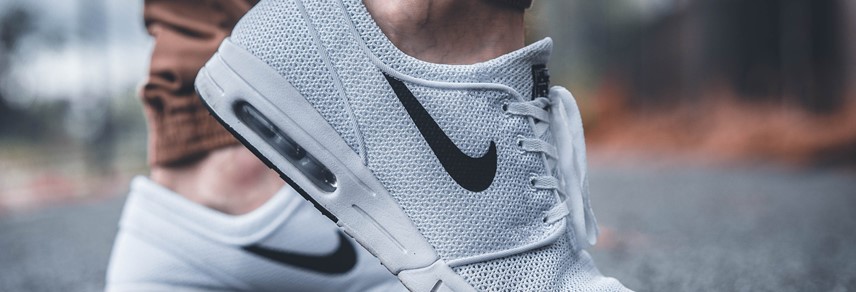
THE RISE AND FALL OF NIKE'S MENTAL HEALTH WEEK
In an effort to reduce burn out post-pandemic, companies are introducing different strategies to improve employee wellbeing. Nike hit headlines after announcing it would be closing its offices for a week to give employees a mental health break, and other companies are following suit.
A government survey found that 1.6m workers suffer from work-related ill health per year, 51% of which is attributed to mental health problems, namely stress, depression and anxiety. As a result, many companies are seeking an immediate fix for work-related burnout, this has seen a rise in mindfulness classes, motivational talks and most recently mental health breaks.
Nike announced its plans to give head office employees in the US one week off to destress and encourage staff to focus on their mental health. Mike Marrazzo, a senior manager of global marketing science at Nike, shared the news, “Nike HQ is powering down for a full week off starting next Monday. Our senior leaders are all sending a clear message: Take the time to unwind, destress and spend time with your loved ones. Do not work.”
Prior to Nike’s announcement, LinkedIn, Bumble and Hootsuite all shut down its offices for a week this year in response to mental health concerns. Bumble announced that all its 700 employees would receive an extra week of paid leave to destress and switch off in June this year.
“It's becoming increasingly clear that the way that we work, and need to work, has changed and our new policies are a reflection of what really matters and how we can best support our teams in both their work and life," said Tariq Shaukat, president of Bumble.
Internally, the mental health week aims to change the burn out culture that has become normalised with long hours and minimal breaks. As Marrazzo said in the announcement “I'm hopeful that the empathy and grace we continue to show our teammates will have a positive impact on the culture of work moving forward.”
In terms of employer brand management, the announcement was widely covered by the media and therefore worked to position Nike as a thoughtful and supportive employer. Marrazzo wrote in the announcement, “It's times like this that I'm so grateful to be a part of this team,” and “It's not just a "week off" for the team... it's an acknowledgment that we can prioritize mental health and still get work done. Support your people. It's good business but it's also the right thing to do.”
Despite the initial praise for mental health week, there has been some criticism surrounding the effectiveness of this strategy. People are asking what happens after the week off, as Joelle Mitchell, head of psychological health at People Diagnostix , says,
“Has anything changed? Or are they all just headed back to the same working environment, with the same pressures and deadlines, the same problems with their supervisors and colleagues, the same corporate policies, the same cognitive dissonance that might come from working for a company with a particular approach to supply-chain...”
Nike has also faced criticism from people questioning why factory and retail workers will not be receiving the benefits of a mental health week, further accusing the brand of corporate virtue signalling. “No disrespect, but a week off for corporate HQ, white collar workers isn't progressive in 2021,” says Michael Lozotsky, CMO at Intelligence Medical Objects.
The consensus seems to be that the introduction of mental health breaks is a step in the right direction but in order for businesses to avoid claims of virtue signalling without addressing the company culture, a longer term and multi-level strategy is necessary to implement lasting change.


